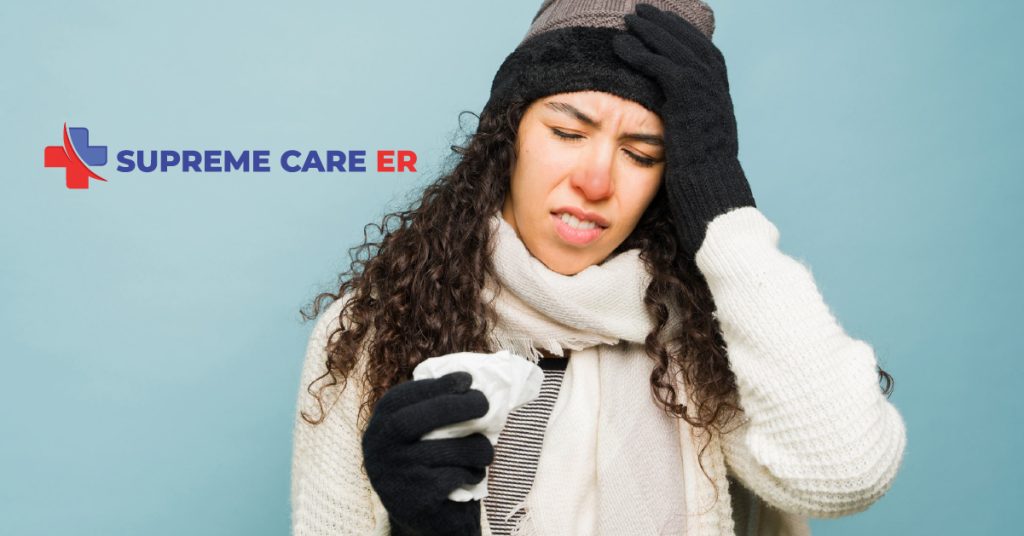Summertime is all about cookouts, picnics, and outdoor eating. But unfortunately, food poisoning is more common during the hot summer months.
The high temperatures and food left out can speed up the growth of harmful bacteria that can lead to food poisoning. At Supreme Care ER we are here to help create awareness to help prevent a potential summer food poisoning emergency with awareness and prevention tips that can help keep you and your family keep you well.
If you suspect that you are someone you know are suffering from a potential food poisoning emergency, please feel to drop by our emergency room in Houston Texas for free medical screening.
What is Food Poisoning?
Food poisoning is caused by ingesting spoiled or contaminated foods or drinks. Most food poisoning cases result from toxins produced by bacteria such as salmonella and E. coli.
The taste and appearance of contaminated foods often don’t change, making it difficult to know you’ve eaten them. That is why to prevent food poisoning; you should ensure all foods and drinks are correctly handled, cooked, and stored.
Bacteria that can Cause Food Poisoning
Many harmful germs can contaminate foods and beverages and cause a food-borne illness. These are the most common:
- Salmonella
- Norovirus
- Campylobacter
- Clostridium perfringens
- Staphylococcus aureus (Staph)
- Clostridium botulinum (botulism)
- Listeria
- Escherichia coli (E. coli)
- Vibrio
E. coli, listeria, clostridium botulinum, and vibrio can cause more severe illnesses that may require hospitalization.
Symptoms of Food Poisoning
Symptoms differ depending on which bacteria or virus caused it, and they can range from mild to very serious.
Most people with food poisoning will experience one or more of the following common symptoms:
- Stomach cramps
- Upset stomach
- Nausea and vomiting
- Diarrhea
- Fever
- Headache
Symptoms can manifest hours or days after ingesting the contaminated food or drink.
How to Prevent Food Poisoning
To help prevent food poisoning this summer, follow these simple tips:
- Store food and drinks in coolers packed with ice until they are ready to consume or cook. Avoid leaving foods out for more than 1-2 hours
- Don’t leave coolers open, and make sure to close them tightly
- Do not leave leftovers out. Store them in sealed containers and place them back in the cooler or put them in the refrigerator
- If you think the food is contaminated, it’s best to throw it away
- Store meats separately from fresh produce
- Follow these USDA cooking guidelines: Cook raw beef, pork, lamb, and veal to a minimum internal temperature of 145 °F – 160 °F. Cook poultry to an internal temperature of 165 °F
- Wash your hands before and after handling food
When to Go to The ER
You should seek medical help if you have severe symptoms that include:
- Bloody diarrhea
- Fever above 101 °F
- Recurrent vomiting that prevents you from keeping liquids down
- Signs of dehydration including dry mouth and throat, little or no urination, feeling dizzy when standing up
- Diarrhea that lasts more than three days
- Change or loss of consciousness
- Unexplained confusion
- Difficulty breathing or swallowing
- Seizures or muscle cramps
Most people only experience mild to moderate symptoms that last a few hours or days. However, food poisoning can result in long-term illnesses, disability, and even death for some people with severe symptoms.
If you suspect you may have food poisoning, please come to Supreme Care ER for evaluation and treatment. We’re a safe, fast, effective, and family-friendly emergency room in Houston open 24/7 including holidays. Please feel free to drop by for free medical screening.








